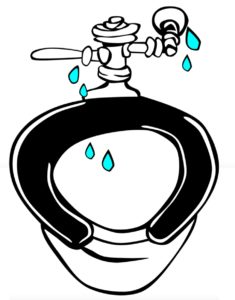How To Keep Your Toilet From Leaking
Leaking toilet tanks are responsible for the loss of tens of thousands of gallons of water per year. That isn’t good for the environment and it isn’t good for your wallet either. Toilet tanks aren’t infallible; after you’ve had them for a few years, it is not unusual for a leak to start. As a result, it is important to take a look at your plumbing system on a regular basis to make sure there aren’t any issues.
How To Stop A Toilet Tank From Leaking
The best way to prevent a problem is to periodically look over your toilet tank and make sure there are no leaks. Most toilets and tanks are very similar. There are two valves in the tank. One is a flush. The other collects the water until it is ready to be flushed. The ball-cock is a refill valve that is often found in the toilet tank. If the flush valve doesn’t seat right, there is an issue with your tank and it is time to call in a professional.
When a leak springs up, tank water gets into the bowl. If left unchecked, the refill tank continues to fill up, over and over. That means there is a lot of water that gets wasted. It is also possible for the refill valve to leak as well. Water is constantly moving into the bowl. That should alert you to the fact that there is a major problem.

Figuring out if the flush is leaking is not hard. Once you determine that there is a leak, stop the water supply so that the toilet tank is not getting any water. There is a valve that does this.
One thing you can do is to note the water level once you have closed the water. Wait half an hour and then look to see if there is any difference. Obviously, if there is not as much water as before, there is a leak that needs to be addressed. However, if the water is at the same level, there is no issue with the flush valve. The problem is the refill valve instead. The fix for that is pretty simple; just tighten it up a little or adjust a few things. You also need to check to see that there is ample water for flushing but nothing else. You don’t want the water to move over the overflow pipe.
There is a water level mark in every flush tank. You do not want the water level to be too low. The water is necessary for there to be a sealing trap. Occasionally, the float may come in contact with other parts of the toilet. To stop that from happening, just separate the float and the leak should stop. You need to make sure there isn’t any water logging, either. Fix this issue by taking the float out and washing it off. If logging continues to be a problem, get a new part. If you are also struggling with the flush valve, and nothing you do is making a difference, put in a new flush ball. Just the actuating mechanism can be switched up as well, so you may not have to replace the entire part. Before you buy something new, though, check to make sure there isn’t anything you can do that will fix the problem.
